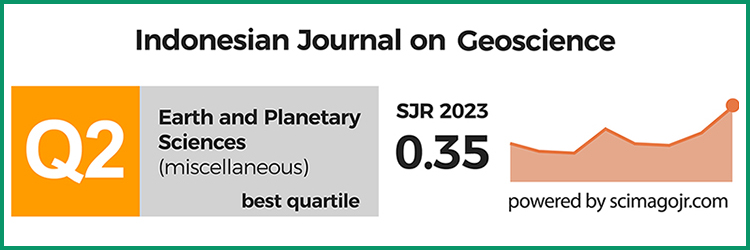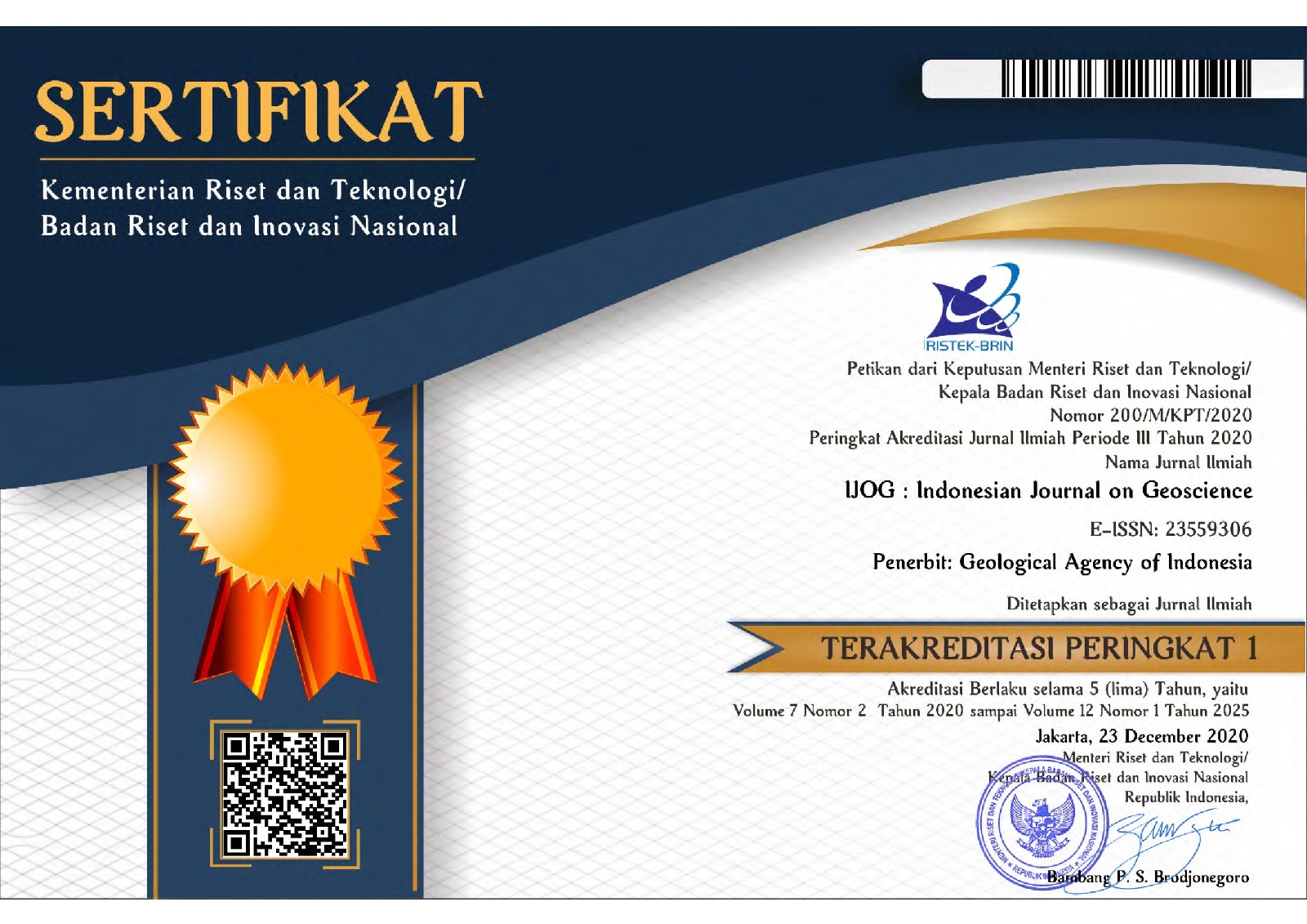Permasalahan dan Strategi Pembangunan Lingkungan Berkelanjutan Studi Kasus: Cekungan Bandung
DOI:
https://doi.org/10.17014/ijog.1.3.163-171Keywords:
land use, watershed, run off coeffi cient, environmental strategyAbstract
https://dx.doi.org/10.17014/ijog.vol1no3.20065
Environmental problems occurring in the Bandung Basin are resulted from improper management pertaining to land and spatial planning, including landuse policy and control. Arising environmental problems are covering disturbance of watershed hydrological function, surface and groundwater quality and quantity, solid waste, and air quality. Environmental studies in the Bandung Basin have been implemented by landuse change interpretation, surface water regime measurements, water quality, solid waste management, and air quality. Landuse change has occurred where some vegetation areas, such as forests and paddy fi elds, have decreased for 54% in one hand, and developed area has increased into 223% in the other hand. Watershed degradation is indicated by run off coeffi cient increasing from 0.3 in 1950 to 0.55 in 1998. Flow regime has also changed by presence of a maximum extreme discharge increasing tendency from 217.9 m3/sec in 1951 to 285.8 m3/sec in 1998, and minimum extreme discharge decreasing tendency from 6.35 m3/sec in 1951 to 5.7 m3/sec in 1998. Groundwater productivity index continued decreasing from 0.1 million m3/unit in 1900 to 0.0188 million m3/unit in 2002. Environmental problem has also occurred in a solid waste management sector where an average level of service is only 43.7%, and air pollution by motor vehicle and industrial emission, such as PM10, NOx, CO2, SO2, Pb, and acid rain phenomena have also occurred. Fresh water supply level of service in the Bandung Basin only covers 43% of the total needs. Watershed degradation occurring in the Basin needs a management system recovery, administrative based-management that shifted to ecological based integrated watershed management.
Effort and strategy required include the policy and institutional reassembling, pollution control, land rehabilitation and conservation, and community empowerment.
References
Badan Pengendalian Lingkungan Hidup Daerah Jawa Barat, 2004. West Java Annual State of The Environment Report.
Badan Pengendalian Lingkungan Hidup Kabupaten Bandung, 2001. Laporan Status Lingkungan Hidup Kabupaten Bandung.
Direktorat Geologi Tata Lingkungan dan Bappeda Propinsi Jawa Barat, 2000. Identifikasi dan Pengendalian Pembangunan di Daerah Resapan, Departemen Pertambangan dan Energi, Direktorat Jenderal Geologi dan Sumberdaya Mineral.
Lembaga Penerbangan dan Antariksa Nasional (LAPAN), 2003. Studi Perubahan Tata Guna Lahan di Cekungan Bandung.
Soedomo, M., 2001. Kumpulan Karya Ilmiah Mengenai Pencemaran Udara, Penerbit ITB, Bandung, Cetakan Ketiga.
Wangsaatmaja, S., 2003. Pengaruh Konversi Lahan Terhadap Rezim Aliran Air Permukaan serta Kesehatan Lingkungan Suatu Analisis Kasus DAS Citarum Hulu, Disertasi, Departemen Teknik Lingkungan, Institut Teknologi Bandung
Widiati, A., 1998. Analisis Pengaruh Perubahan Fungsi Ruang Hidrologi Terhadap Keseimbangan Air: Studi Kasus Cekungan Bandung, Tesis, Departemen Teknik Lingkungan, Institut Teknologi Bandung.



















